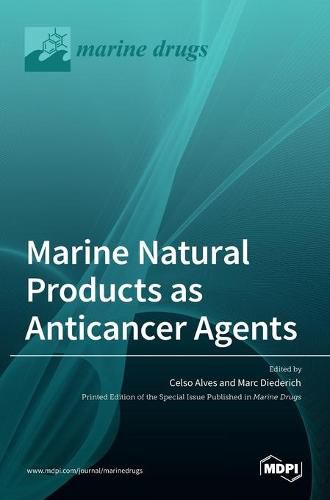Readings Newsletter
Become a Readings Member to make your shopping experience even easier.
Sign in or sign up for free!
You’re not far away from qualifying for FREE standard shipping within Australia
You’ve qualified for FREE standard shipping within Australia
The cart is loading…






This title is printed to order. This book may have been self-published. If so, we cannot guarantee the quality of the content. In the main most books will have gone through the editing process however some may not. We therefore suggest that you be aware of this before ordering this book. If in doubt check either the author or publisher’s details as we are unable to accept any returns unless they are faulty. Please contact us if you have any questions.
Cancer remains one of the most significant threats to human health and one of the deadliest diseases worldwide, making it crucial to develop new drugs. Over the last few decades, natural products have become one of the key drivers in the development of innovative cancer treatments. Despite drug development from terrestrial resources, the marine environment only recently emerged as a prolific source of unparalleled structurally active metabolites. Due to their excellent scaffold diversity, structural complexity, and ability to act on multiple cell signaling networks involved in carcinogenesis, marine natural products (MNPs) are ideal candidates to inspire the development of novel anticancer medicines. This book gathers nine publications of the Special Issue Marine Natural Products as Anticancer Agents, providing an excellent overview of the chemical richness offered by marine organisms, such as sponges, myxobacteria, fungi, and soft corals. MNPs or derived products belong to distinct chemical classes, including terpenoids, alkaloids, cyclodepsipeptides, polyketides, and hydroxyphenylacetic acid derivatives. These compounds modulate cancer cell mechanisms in in vitro and in vivo models, exhibiting high specificity and great affinity to interact with biological targets linked to specific intracellular signaling pathways, including mitochondrial dysfunction, autophagy, endoplasmic reticulum stress induction, apoptosis, inflammation, migration, and invasion. This volume provides an exciting overview of marine natural products as potential therapeutic agents for cancer treatment.
$9.00 standard shipping within Australia
FREE standard shipping within Australia for orders over $100.00
Express & International shipping calculated at checkout
This title is printed to order. This book may have been self-published. If so, we cannot guarantee the quality of the content. In the main most books will have gone through the editing process however some may not. We therefore suggest that you be aware of this before ordering this book. If in doubt check either the author or publisher’s details as we are unable to accept any returns unless they are faulty. Please contact us if you have any questions.
Cancer remains one of the most significant threats to human health and one of the deadliest diseases worldwide, making it crucial to develop new drugs. Over the last few decades, natural products have become one of the key drivers in the development of innovative cancer treatments. Despite drug development from terrestrial resources, the marine environment only recently emerged as a prolific source of unparalleled structurally active metabolites. Due to their excellent scaffold diversity, structural complexity, and ability to act on multiple cell signaling networks involved in carcinogenesis, marine natural products (MNPs) are ideal candidates to inspire the development of novel anticancer medicines. This book gathers nine publications of the Special Issue Marine Natural Products as Anticancer Agents, providing an excellent overview of the chemical richness offered by marine organisms, such as sponges, myxobacteria, fungi, and soft corals. MNPs or derived products belong to distinct chemical classes, including terpenoids, alkaloids, cyclodepsipeptides, polyketides, and hydroxyphenylacetic acid derivatives. These compounds modulate cancer cell mechanisms in in vitro and in vivo models, exhibiting high specificity and great affinity to interact with biological targets linked to specific intracellular signaling pathways, including mitochondrial dysfunction, autophagy, endoplasmic reticulum stress induction, apoptosis, inflammation, migration, and invasion. This volume provides an exciting overview of marine natural products as potential therapeutic agents for cancer treatment.